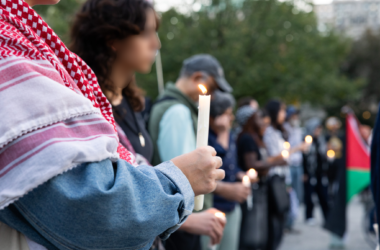Professor Michelle Hartman, a member of the McGill Faculty Labour Action Group (MFLAG) has recently come under fire for holding a seminar off campus in the Plateau. The Islamic Studies professor supports the MUNACA strike, and wanted to avoid crossing the picket line—a symbolic gesture of solidarity—by teaching her classes off-campus. Hartman felt that she had a moral obligation to respect the picket line, both because of her personal beliefs and the subject matter of her classes, which deal with revolutions in the Middle East and economic inequalities.
Practical and legal complications were brought up by students and the administration. Hartman’s students complained about the inconvenience of commuting and the possibility of missing other classes, and students are not covered by McGill’s insurance policy once they are off campus. Article seven of the Charter of Student Rights states that students are entitled to safe and suitable conditions for learning. Without insurance protecting students or a convenient location for classes, Hartman violated the charter. The university responded to Hartman’s actions by threatening her salary, citing these violations of university regulations. The university also makes strong practical arguments for these regulations: Hartman’s actions inconvenience students, and they pose a liability problem for students and the university.
Practicality aside, Hartman’s efforts to avoid crossing the picket line entangled her students in a mess in which they may have preferred not to be involved. Her students, by attending a class off campus, became implicit in Hartman’s stance against the university. No student should be forced to make a political statement in order to attend a class in which they are enrolled. Hartman’s actions are commendable, but misdirected: by holding class off campus, she impacted her students more than the ongoing conflict itself.
It is important for McGill students to attend a university in which professors teach real-life lessons inside and outside of the classroom, and Hartman’s actions have raised broader concerns about the efficacy of faculty support of MUNACA. We, as students, should attend an institution in which our academic leaders are active members of society. If faculty members can’t make an important symbolic gesture without risking their salaries, then the university has left them in a tight bind. There are, however, other ways for faculty members to speak out: walking alongside strikers, writing letters to the university and local media, and speaking to their students directly about the issues. Students and faculty alike are feeling the effects of the strike and hope that the university and MUNACA will reach a compromise. However, faculty members further disrupting student life is unlikely to make that happen any faster.
The Tribune hopes that Hartman and other members of MFLAG find a more constructive way to support the strike.





